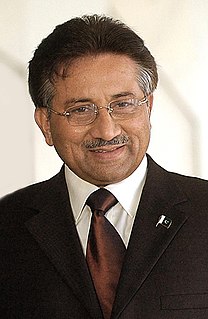A Quote by Pervez Musharraf
Related Quotes
I think our brains does have a tendency to be true to its own ideas and statements. Everything we do and everything we think about is a belief. Until we get to the point where we look beyond our own ego-self, and to some degree beyond our own mind, we are always going to make assumptions and have beliefs to make our brains feel more comfortable. And if we can get to a point where we embrace that uncertainty and doubt, and be willing to learn from that and to explore that, I think that that could be a very positive experience.
Many quantum physics are realizing or hypothesizing that consciousness is not a byproduct of evolution as has been suggested. Or for that matter, an expression of our brains, although it expresses itself through our brains. But consciousness is the common ground of existence that ultimately differentiates into space, time, energy, information and matter. And the same consciousness is responsible for our thoughts, for our emotions and feelings, for our behaviors, for our personal relationships, for our social interactions, for the environments that we find ourselves in, and for our biology.
If you see voters as rational, you'll be a terrible politician. People are not wired to be rational. Our brains simply evolved to keep us alive. Brains did not evolve to give us truth. Brains merely give us movies in our minds that keeps us sane and motivated. But none of it is rational or true, except maybe sometimes by coincidence.











































